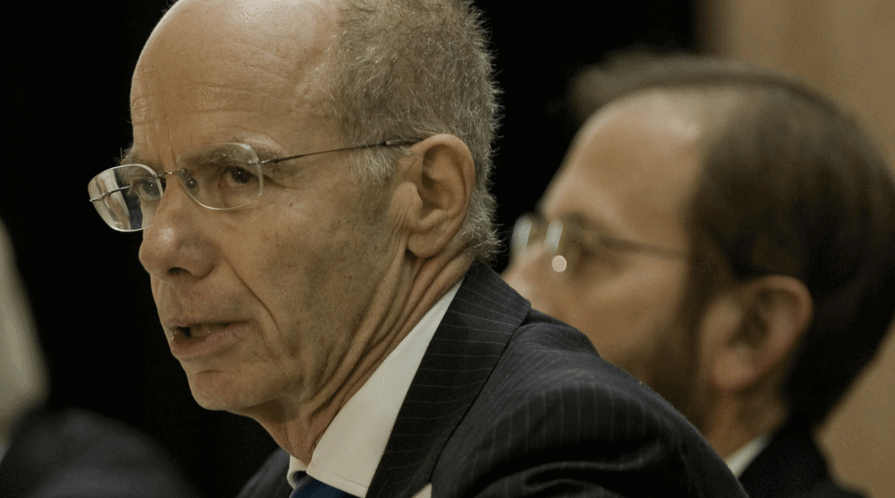Experts debate key policy issues at FSI's fourth annual conference

"How grievous are the wounds the rule of law has sustained over the past seven and one-half years?" FSI Director Coit D. Blacker asked at the beginning of FSI's fourth annual conference, Transitions 2009. This year's conference, coming on the heels of the U.S. presidential election, focused on opportunities for change offered by historic transitions at home and abroad. The Nov. 13 invitation-only event was attended by 370 Stanford scholars, outside experts, policymakers, diplomats, and leaders from business, medicine, and law, bringing together some of the sharpest minds in the country to formulate and discuss recommendations for U.S. President-elect Barack Obama and other world leaders.
The day-long conference was structured around a morning and an afternoon plenary, with a luncheon address by Oxford professor and Hoover Institution senior fellow Timothy Garton Ash. In his address, "Beyond the West? New Administrations in the U.S. and Europe Face the Challenge of a Multipolar World," Garton Ash urged concerted action on four projects of visionary realism: global economic order; development, democracy, and the rule of law; energy and the environment; and banishing nuclear weapons. Garton Ash also called for relaunching a strategic partnership among the United States and the 27-member European Union, not as a partnership against other nations, but as an alliance that would reach beyond the West to develop new and effective communities of shared purpose.
The morning plenary, "U.S. Transition 2009: Where Have We Been? Where Are We Going?" brought FSI Director Blacker together with Stanford President Emeritus and constitutional law scholar Gerhard Casper, Center on Health Policy/Center for Primary Care and Outcomes Research Director Alan M. Garber and FSI senior fellow and former State Department policy planning director Stephen D. Krasner. Their varying but esteemed backgrounds allowed for a truly interdisciplinary discussion of the policy challenges, priorities, and prospects facing the new American president. "We have just lived through the most extraordinary claims to unbound power since the days of Richard Nixon," said Casper. "This rejection of the rule of law, just like the images of Abu Graib, will be present in the minds of many with whom we have to deal the world over."
The afternoon plenary, "Power and Responsibility: Building International Order in an Era of Transnational Threat," featured Stephen J. Stedman, FSI senior fellow and director of the Ford Dorsey Program in International Studies; Bruce Jones, director of the Center on International Cooperation at New York University; and Carlos Pascual, director of Foreign Policy Studies at the Brookings Institution. The three discussed their ambitious new project, Managing Global Insecurity Project (MGI) (MGI), which aims to provide recommendations and generate momentum for the next American president, the United Nations, and key international partners to launch a strategic effort to build the global partnerships and international institutions needed to meet 21st century trans-border challenges and threats. One key recommendation is to expand the current G-8 to a G-16 of established and rising powers by including China, India, Brazil, Mexico, South Africa, and major Muslim nations such as Indonesia, Turkey, and Egypt.
Interactive breakout sessions in the morning and afternoon allowed participants to engage in debate with Stanford faculty and outside experts. Breakouts covered such diverse topics as combating HIV in low-resource countries, rethinking the war on terror, leveraging the EU to promote democracy and human rights, whether the U.S. should promote democracy, transitions in African society, working in a global economy, and overcoming barriers to nuclear disarmament.
